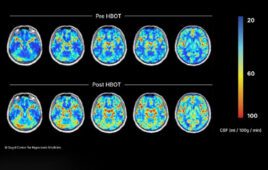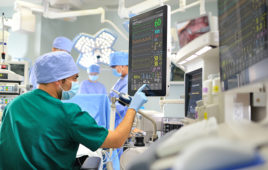Stem cell medical tourism and unproven stem cell interventions are growing and concerning issues for patients afflicted with lung disease. According to Boston University School of Medicine (BUSM) researchers, there are an increasing number of clinics worldwide offering expensive stem cell-based therapies that are ineffective or have no proven benefit.
In an editorial released online in the Annals of the American Thoracic Society, lead author Laertis Ikonomou, Ph.D., assistant professor of Molecular and Translational Medicine at BUSM and member of the Center for Regenerative Medicine explained, “Remarkably, an increasing number of these clinics now operate within the United States. It is imperative that scientific and medical societies, as well as professional respiratory disease and critical care communities speak out forcefully against stem cell tourism.”
According to Ikonomou, a lead member of the American Thoracic Society’s Stem Cell Working Group, perceptions of stem cell-based therapies can be significantly different between experts and the general public, including patients. While experts evaluate therapies based on demonstrations of safety and efficacy, many patients are motivated by hope and the desperate need for a cure.
Ikonomou and colleagues say several factors exacerbate these perceptions, including aggressive and unscrupulous advertisement of unproven stem cell therapies, uncritical and overly optimistic portrayal of stem cell clinical translation in mainstream media, use of selected and uncontrolled patient testimonials to suggest benefit and reluctance of experts to speak-out against stem cell medical tourism due to fears of litigation and political backlash.
“The problem of stem cell medical tourism of unproven, unregulated cell therapies can be best tackled through international collaboration, and engagement and education of all parties including patients, physicians and other caregivers and scientists,” Ikonomou said. “We can turn the tide on this global health problem by vigorously implementing a multi-pronged strategy that combines continuous education of the public, pressure for effective regulations and rigorous research in the field of lung regenerative medicine.”




